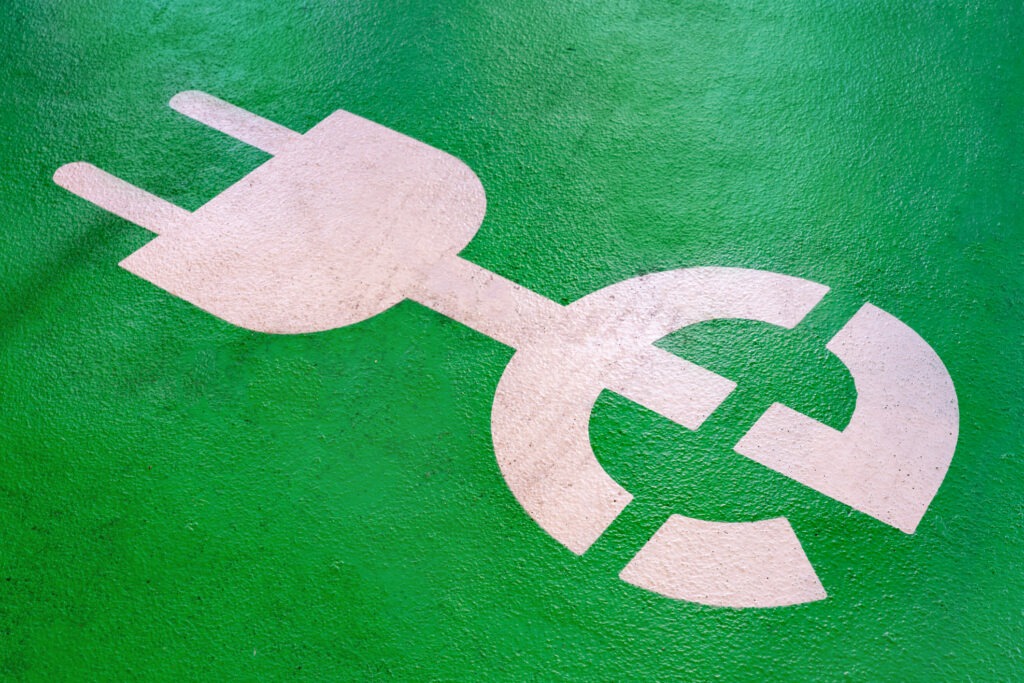Historic French EV market triumph for Tesla
16 February 2024

The French electric vehicle (EV) market ended 2023 on a positive note, improving on last year’s performance, with Tesla ending up on top. José Pontes, data director at EV-volumes.com, looks at how the market grew in December.
EVs continued their growth in December. The combination of battery-electric vehicles (BEVs) and plug-in hybrids (PHEVs) achieved a record 54,413 units, accounting for 30% of overall new-car registrations. This matched its best-ever market share from November.
BEVs made up 21% of this total. The powertrain saw deliveries up 50% year on year, thanks to a record 37,355 units. PHEVs grew 17% on December 2022, with 17,058 registrations.
In 2023, EVs took 26% of the French new-car market, with BEV models contributing 17%. This was an improvement from technology’s 22% share in 2022, and eight percentage points above its 2021 share.
This year should see stronger growth for EVs, with a realistic jump to between a 33% and 35% share of the overall market. This progress is needed to keep on track with the 2035 internal combustion engine (ICE) ban, after slow development in the last three years.
BEVs made up 65% of the French EV market last year, an increase on 62% from 2022. The split was more pronounced during December, with BEVs taking 69% of all EV deliveries. This figure should continue to favour the powertrain in 2024, as smaller and more affordable models come to market. This could mean BEVs end the year with an EV market share of over 70%.
Reaching this target will depend on how fast domestic brands can ramp up affordable EV models, such as the Citroen e-C3 EV and Renault 5. Another factor will be government policies. If EV incentives remain until the end of 2024, adoption should surge.
Hybrid-electric vehicles (HEVs) improved their market share by two percentage points to 24% last year. This means electrified models accounted for half of all new-car registrations in 2023, up from 44% in 2022.
Incentive influence
Heading into December, it was expected that China-built EVs would see a rush of registrations. This is because, from the start of 2024, they would no longer be eligible for EV incentives.
This prediction proved true, as the Tesla Model 3, which is manufactured in China, topped the December best-sellers table with 4,790 deliveries. The crossover was also the fourth best-selling new car overall.
The German-built Tesla Model Y still performed well, with 4,618 deliveries enough for second, helping the US carmaker lock out the top two spots in the table again. It also placed fifth in the overall market.
Another China-made model in the top three was the MG4, posting a record 4,138 registrations, enough for third place. However, the Dacia Spring, also produced in the country, had an average performance. It took fourth, thanks to 2,810 units taking to the roads.
Elsewhere in the EV best-seller chart for December, BMW Group had four record performances. The Mini Cooper EV reached eighth, claiming a best-ever 1,146 registrations. Its next generation will be made in China, meaning some buyers may have wanted to save money by purchasing the current model.
Meanwhile, the BMW iX1 in 11th (1,007 units) and the BMW X1 PHEV in 17th (636 units) both achieved record results, as they ramped up production.
However, the best-ever figure for the BMW i4 in 15th (655 units), was a surprise. Despite a previously underwhelming performance in France, it posted record numbers in multiple markets, as demand has spiked for the saloon.
In ninth came the Renault Twingo EV with 1,096 deliveries its best total in over a year. Below, the Peugeot 308 took 10th (1,066 units), as its BEV version reached three digits with 108 registrations.
The best-selling PHEV in December, with a record 953 deliveries, was the Mercedes-Benz GLA PHEV in 12th. It was followed by its sibling, the Mercedes-Benz GLC PHEV in 13th (713 units), and the Cupra Formentor PHEV in 14th (668 units). This was a record result for the latter, with its December figure higher than its total across the whole of 2022.
MG benefitted from the subsidy-ending surge in December, with its ZS EV model also making the top 20, with 628 units giving it 18th place. Outside the table, the MG HS PHEV also performed well, as buyers took the chance to secure Chinese-built models before the deadline. It posted its highest tally since November 2021, as 517 units took to the road.
The new Hyundai Kona EV had a strong month in 20th (599 units) as deliveries for its new generation picked up speed. It could perform well in 2024, as the model will not lose access to subsidies.
Outside the top 20, the Mini Countryman posted a year-best 457 deliveries. Elsewhere in its parent group, the BMW X3 recorded its best tally in 19 months (497 units). Meanwhile, its sibling, the X5 (472 units), had its highest total in three years.
Volkswagen (VW) also had a positive month, as the ID.3 and ID.4 saw year-best results, posting 466 and 532 registrations respectively. Furthermore, the Golf PHEV had its best performance since March 2021 with 378 deliveries.
Another Tesla title
The Tesla Model Y was crowned as the best-selling EV in France in 2023, with 37,127 registrations giving the crossover its first title. It also claimed eighth spot in the overall best sellers table, as well as a midsize category win.
The crossover should remain a strong contender for the top spot in 2024, as the German-made model will not lose access to subsidies this year. It can be expected to reach between 40,000 and 45,000 units this year.
However, the China-made Tesla Model 3 will lose incentive access, and its deliveries are predicted to drop. The refreshed model placed third in the EV rankings, moving up two places from November. It also took second in the overall midsize category, thanks to 24,539 deliveries.
Splitting the two Tesla offerings was the Dacia Spring, posting 29,761 registrations for its second runner-up spot in a row, and a city car category title.
There will be a new generation of the SUV in the latter half of 2024, with production moving to Europe, likely resulting in a record figure. Yet the older model is expected to slump in the year's first half, threatening its chances of surpassing 30,000 units.
The Peugeot e-208 fell to fifth at the end of the year, with a total of 22,508 units. Despite this, it still took the supermini category title. This year it could see a dip in demand as newer and more affordable models become available for buyers.
An example is the Citroen e-C3, which is expected to reach 30,000 units in 2024. This will be thanks to an affordable price tag. However, this will be dependent on a smooth ramp-up of production, with the first deliveries aiming to land in April.
Elsewhere, the Renault 5 could also make an impact on the market. Deliveries should begin in the second half of 2024, making a top-three position a tough task this year. Yet in 2025, the hatchback should be targeting the EV top spot, alongside an overall market top three.
Making the most of the e-208’s slow month was the Fiat 500e, which overtook the French model, as its tally of 23,525 units moved it into fourth.
In sixth, the MG4 (20,074 units) took the compact category win, in front of the Renault Megane EV (17,623 units).
Further down the rankings, the Renault Twingo EV climbed to ninth (8,505 units). This means three city car models managed a top-10 finish. The Kia Niro improved to 13th (6,715 units). The Korean crossover IS expected to disappear from the table in 2024 as it loses incentives.
Just 14 units shy of making the top 20, the VW ID.3 ended a disappointing year with 4,791 deliveries.
The best-selling full-size model in 2023 was the BMW X5, thanks to 3,032 registrations. It comfortably beat the Mercedes-Benz GLE (1,967 units), while the Audi Q8 e-Tron was the best-selling BEV in the category (872 units).
First foreign victory
Within the brand rankings, Tesla took a historical triumph in 2023, becoming the first foreign manufacturer to take the victory. During December their share rose to 13.7%, up from 13.1% in November.
This meant Peugeot was unable to retain the title, dropping to an 11.3% share from 11.9% in the previous month. This growing gap was due to the domestic brand's sluggish end to 2023, contrasted with a stronger-than-expected finish from the US carmaker.
Renault remained in third taking 7.4% of the EV market, followed by Dacia in fourth (6.5%), which edged out MG (6.4%, up from 5.9%).
Below the top five, BMW (5.6%) continued its rise, passing Fiat (5.3%) for sixth place. The German marque is expected to continue its upward trajectory in 2024, as MG loses access to subsidies.
When looking at automotive groups, with brands brought together under their parent companies, Stellantis continued to stall in December. It dropped to a 25.7% share from 27% in November.
Despite this, the group claimed the title, a long distance ahead of the Renault-Nissan-Mitsubishi Alliance in second (14.4%). A Renault rebound is expected in 2024 to boost their share.
Tesla took third (13.7%, up from 13.1%), in front of the VW Group in fourth (11.7%). The German manufacturer could take Tesla’s position in 2024, due to the predicted delivery drop of the Model 3. Rounding out the top five was the BMW Group (8.1%).



